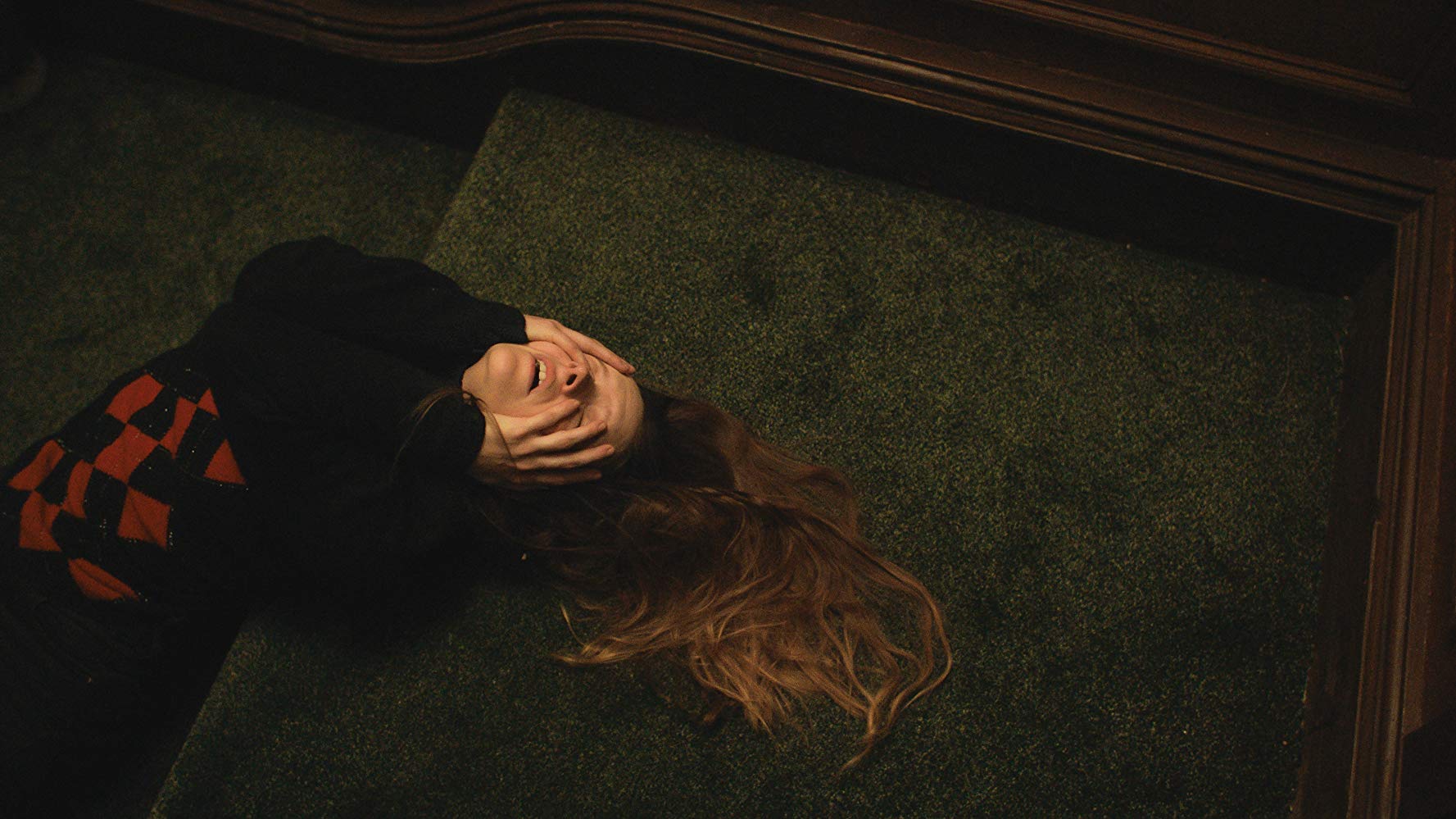Saint Maud was one of the most promising films of early 2020. A grim, psychological horror where the evil is coming from inside the godly, à la the terrifying religious fervor of the mother in Carrie? Sign a specific subset of moviegoers up! But then along came global crisis and Saint Maud was delayed, and then delayed again, and then shelved for what seemed like indefinitely (unless you live in the U.K.). Distributors at StudioCanal must’ve kept their new year’s resolution, though, because Saint Maud is finally hitting U.S. video-on-demand almost a year from its original release date.
Saint Maud is the story of Maud, a woman who is very much not a saint. Her name’s not even Maud, technically. She’s Katie, a nurse who was fired from her practice after a patient died in her care, and she’s assumed a new name so she can apply for private care positions without scrutiny. She’s also become a big fan of God since her fatal accident, which becomes a sticking point between Maud and her fraudulently obtained new patient: Amanda, a terminally ill dancer from the U.S., and an atheist.
Amanda, who knows nothing of Maud’s past because Saint Maud got such a late U.S. release, is amused by Maud’s zealous conviction and plays along at first, allowing her nurse to lead her in prayer and pretending to feel God’s presence. Maud doesn’t notice Amanda’s little game because she’s really feeling God’s presence—or at least really feeling something. Her moments with the Lord tend to end with her writhing, gasping, clenching her fists in the throes of some spiritual ecstasy, the Spirit abuzz in her deepest cavities.
It looks how it sounds, and it’s hard to look away. The uncomfortable intertwine of the spiritual and sexual is where Saint Maud is most intriguing. For one, it’s the best insight we get into Maud’s mind as a character: the film is barely 80 minutes and moves at a decent clip, so we don’t spend too much time inside her head. The enduring impression of her is that she’s a lonely religious fanatic, and little is done to complicate that notion. When a hint of lust creeps into her eyes as they linger on the musculature of a demon in a painting, Maud feels less like a villain waiting to happen and more like—well, the protagonist of her own movie. She has strange desires; she’s a sinner, she’s a human, she’s a girl named Katie. Morfydd Clark does a great job of both reveling in and recoiling from her human depravity.
In the quiet, when Saint Maud sidles away from the tension of building up to some violent act of religious passion, a whisper can be heard of Maud’s fractured relationship with pleasure. She receives none from her life, none from those around her, and her attitude toward sex doesn’t perfectly line up with her newfound conservatism. But this whisper is a line of thought that never found its end before it made it from screenplay to screen. For Saint Maud is louder than that whisper in its atmosphere, in its dark, hopeless lighting, in its ominous close-ups on Maud’s most disturbing behavioral minutiae. It’s a film that cannot hide the inevitability of its violent act of religious passion. It’s a film that—up until the very final shot—knows Maud is wrong and knows her beliefs are dangerous. That’s all well and good, and it’s not incorrect, but what Saint Maud misses is that the question of Maud’s incentives was more interesting than her preordained destination. The fate of Carrie’s mother is a traumatizing concoction of misplaced faith and implicit sexual energy, but it’s not the reason Carrie stood the test of time. That would be Carrie, who we knew a little better.
★★★ (3/5)




